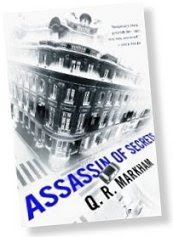- Caught between between protesters and Egypt's military, the Institute d'Egypt, the research centre set up by Napoleon Bonaparte when the French invaded in the late 18th century, caught fire when both sides clashed. Among the treasured writings housed in the Institute was the handwritten 24-volume Description de l'Egypte, which includes two decades' worth of notes by over 150 French scholars and scientists on Egypt's monuments and its history. Like the Institute, over 190,000 books, journals and writings - some of which were 200 years old - were damaged by the fire, possibly beyond repair.
- News of another death in the literary world were nearly swamped by tributes to the late Christopher Hitchens. So George Whitman's Shakespeare and Company is not the same storied bookstore frequented by Ernest Hemingway, F Scott Fitzgerald and Gertrude Stein. Whitman's S&Co, was originally called Le Mistral and is about half a century old. The place is now being managed by his daughter Sylvia, and as seen the likes of Samuel Beckett, Allen Ginsberg and William S Burroughs.
Speaking of bookstores and old gentlemen: Thank you, Leong Siok Hui, The Star for bringing The Penang Bookshelf to our attention. She also put together a profile of the owner. - Previously, there was speculation about how Jane Austen died - was she murdered? The same is now being asked of Robert Ludlum, author of the Bourne Identity. Is there something ... undignified or mundane about natural causes, etc that some sensational cause of death needs to be applied to authors of note?
- Will book promos go Bollywood? After completing his book, the first in the Shiva Trilogy, Amish Tripathi made a film trailer as part of the book's marketing. It's not a unique case; there are some video trailers on a web site for a series of alternate history novels depicting Elizabeth I of England as a descendant of a Druidic vampire-killing priestess. My review of the first book has yet to be published.
- Frustrated at having her books pirated, Spanish novelist Lucía Etxebarria has threatened to quit writing. While we can perhaps sympathise with the Basque author, blogger The Digital Reader thinks she should be taking steps to reduce the pirating of her works - like, maybe, introduce cheaper, more accessible e-editions of her books? - instead of merely throwing hissy-fits.
The head-desk inducing irony, according to the blogger, was that Etxebarria did not want to publish e-book versions "because that is easy to pirate. It would have been like throwing it straight to the lions." ...Then again, it's not as if every writer is like Paulo Coelho and can give away free books. - Elsewhere, people are wondering if 99 cents is too cheap for an e-book. How does one come up with a win-win-win-win pricing scheme for authors, publishers, retailers and readers? One reason why it would be better to price an e-book above 99 cents:
The difference in royalty earnings between a self-published book at 99 cents through [Kindle Direct Publishing] and a $2.99 book through [ditto] is roughly $1.66 per book. ... At $1.66 per book, authors need to sell only 24,100 books, or 2008 per month to earn $40,000 per year, not a stellar salary by any means, but enough to make writing more than just a passion. Remember, most indie authors are not selling 2000 copies of their books per month - they’re lucky to sell 50.
It's only a matter of time before 99 cents would cease being a fair price for e-books. - Teachers in the US are publishing their own textbooks "for niche courses ... for which a suitable book doesn't exist; to self-publish supplementary material for a class; or because sudden curriculum changes can put widely used textbooks out of date", thanks to self-publishing firms. In light of the reported disintegration of the US school system, this bit of news is heartening.
- Write a book, get it published, what could possibly go wrong? Peter Bromhead finds out. Make sure this doesn't happen to you.
- Steven Piersanti, President of Berrett-Koehler Publishers, presents a cheat sheet-style piece about his ten awful truths about book publishing and a list of strategies for responding to them.
- Will the 21st century see the death of books? Nay, says the Guardian. "Far from killing off the book, the digital age is proving a boon to innovative publishers and authors, many of whom are using new technology to breathe life back into old ideas." Profiled are three such innovations: online subscription publishing site Unbound, hybrid books and Boxfiction, "the TV show you read"... what, reading TV?
- Another case for the existence of the physical book: signed, annotated secondhand books as collectibles of historical value.
- Writer and editor Robert McCrum lists fifty things he learnt about the literary life and outlines a new map for the changing landscape that is the world of books.
Categories:
Book Marks
























